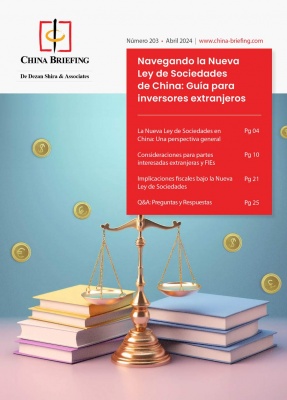SAFE Requires Additional Documents for Foreign Exchange Settlement
Sept. 8 – The State Administration of Foreign Exchange (SAFE) issued the “Supplementary Circular on Issues Relating to Improving Business Operations with Respect to the Administration over Payment and Settlement of Foreign Exchange Capital of Foreign-invested Enterprises (Huizongfa [2011] No. 88, ‘Supplementary Circular’)” on July 18, 2011, which came into effect on August 1, 2011. The Supplementary Circular, promulgated on the basis of Huizongfa [2008] No. 142 (“Circular 142”), stipulates additional documents that enterprises should provide when applying for foreign exchange capital settlement, as well as imposes on banks the obligation to examine and verify the authenticity of the invoices related to and the usage of RMB funds obtained from enterprises’ foreign exchange capital settlements.
Additional documentary requirements
The additional documents required by the Supplementary Circular are as follows:
- Original copies of relevant vouchers, including invoices for the outbound payment of RMB funds obtained from the previous foreign exchange capital settlement made in accordance with payment order.
- For enterprises which paid taxes and fees to government organizations, public institutions and other organizations, they can provide the bank with the original copies of relevant vouchers, including receipts, payment notifications and tax clearance certificates.
- Print-out copies of results of the tax department’s internet invoice authenticity inquiry system, stamped with the official or financial seal of the enterprise. For invoices that cannot be verified on the internet, enterprises should submit proof of invoice authenticity issued by the tax authority, affixed with official or financial seal of the enterprise.
Banks’ obligations
Banks are required to examine and verify the authenticity of the above-mentioned invoices, as well as the compliance, authenticity and consistency of the use of the RMB funds derived from the capital settlement.
As of the implementation date of the Supplementary Circular, where the sum of the enterprise’s cumulative capital settlement (including reserve fund) and foreign exchange paid under such capital account (including domestic remittance) has reached 95 percent of the cumulative amount incurred in the credit account, the bank should process the remaining foreign exchange capital settlement or payment only after it has verified the authenticity of the invoices and other certificates corresponding to the above-mentioned foreign exchange settlements. Banks should affix the date, business stamp, as well as insert the following remark on the foreign exchange settlement application letter: “The invoices for the settlement of 95 percent foreign exchange in the account (excluding remittance) have been verified.”
Other requirements
If the relevant goods are returned, transactions are revoked, or invoices are invalidated after the payment of foreign exchange, enterprises should report the same to the original bank processing the settlement within five working days of the above-mentioned occurrence.
Enterprises’ foreign exchange settlements under reserve funds should not exceed the equivalent of US$50,000 for each transaction, and should not exceed the equivalent of US$100,000 per month, starting from the effective date of the Supplementary Circular.
Strict penalties will be imposed on enterprises using counterfeit invoices and on banks processing settlements in violation of the rules.
City specific requirements
Subsequent to the issuance of the Supplementary Circular, various cities have successively promulgated their own supplementary circulars with more specific and detailed requirements and instructions related to foreign exchange settlements. For example, Guangzhou promulgated Yuehuizongzi [2011] No. 6 on July 26, 2011, which specified that, for funds that fall outside of the reserve fund scope, enterprises may apply not for foreign exchange settlement in the name of reserve fund.
Beijing promulgated Jinghui [2011] No. 158 on August 1, 2011, which specified the scope of the authenticity verification by all banks in Beijing as follows:
- Each invoice must be verified where the value of individual invoices exceed RMB1,000 (inclusive), or where no more than 50 invoices are provided in a single sum of foreign exchange settlement;
- Where the value of individual invoices is under RMB1,000 and more than 50 invoices are provided for a single sum of foreign exchange settlement, the bank can conduct random checks on the authenticity of the invoices. The number of invoices checked should be no less than 50 percent of the total number of invoices corresponding to the foreign exchange settlement.
“Single sum of foreign exchange settlement” refers to foreign exchange settlement applications that involve one invoice-issuing entity. If a foreign exchange settlement application involves multiple invoice-issuing entities, the application will be deemed to consist of multiple settlements.
Dezan Shira & Associates is a boutique professional services firm providing foreign direct investment business advisory, tax, accounting, payroll and due diligence services for multinational clients in China, Hong Kong, Vietnam and India. For more information on cross-border settlements, please email info@dezshira.com, visit www.dezshira.com, or download the firm’s brochure here.
This article was originally published on the Dezan Shira & Associates online business resources library. To view the original article, and other regulatory updates, please click here.
Related Reading
China Further Standardizes Cross-border RMB Settlement Operations
China to Expand Cross Boder RMB Use
China to Try New Measures to Encourage Import and Outbound FDI Next Year
- Previous Article China Law Deskbook Legal Update – Sept. 2011
- Next Article Springer Licenses China Briefing Worldwide
























